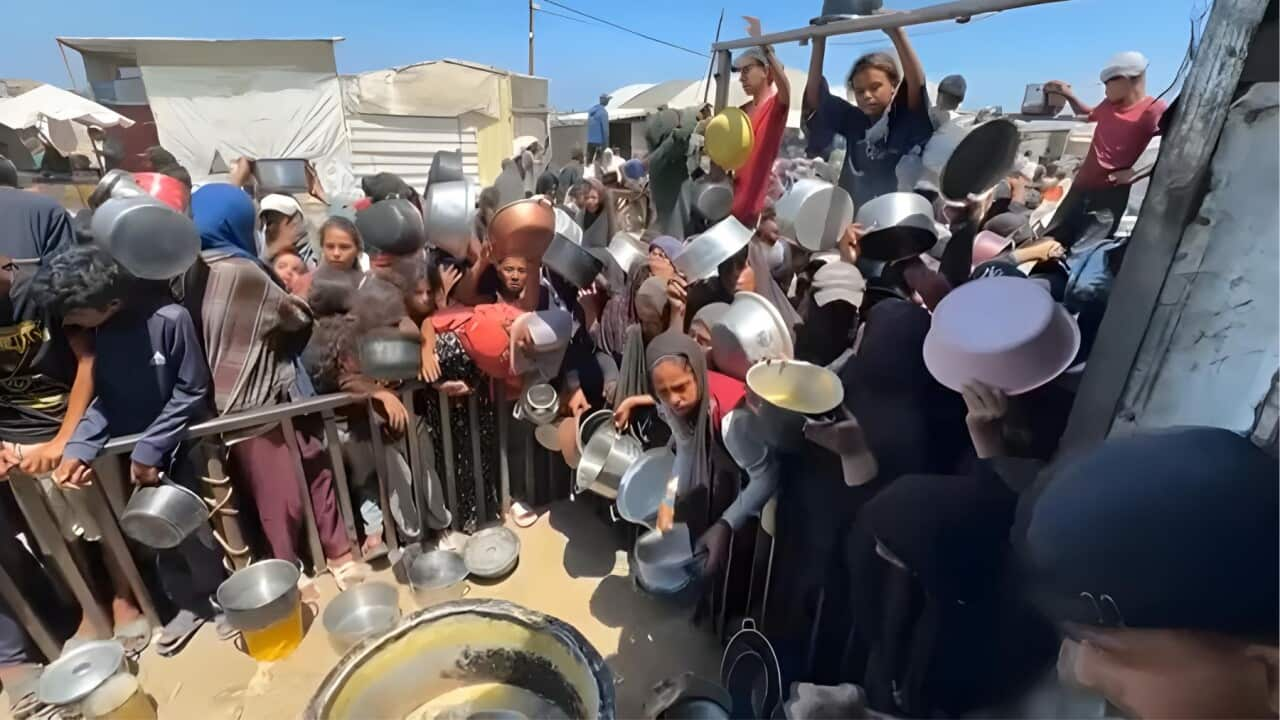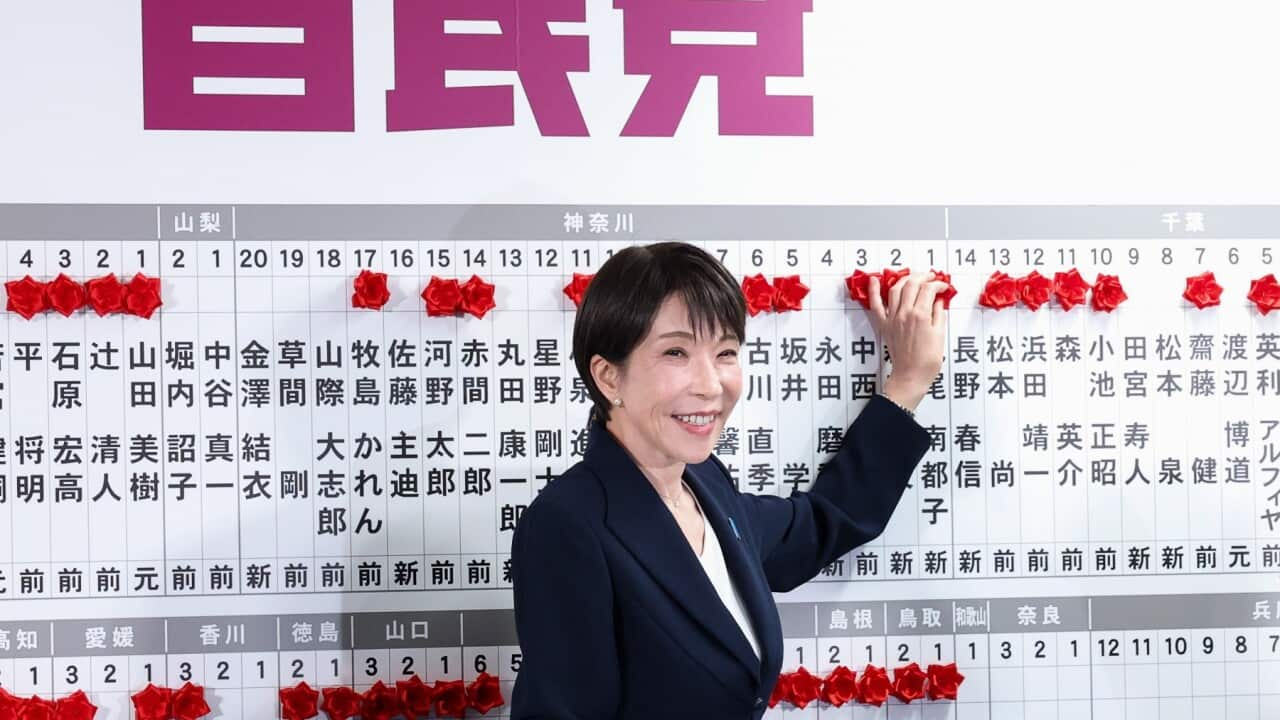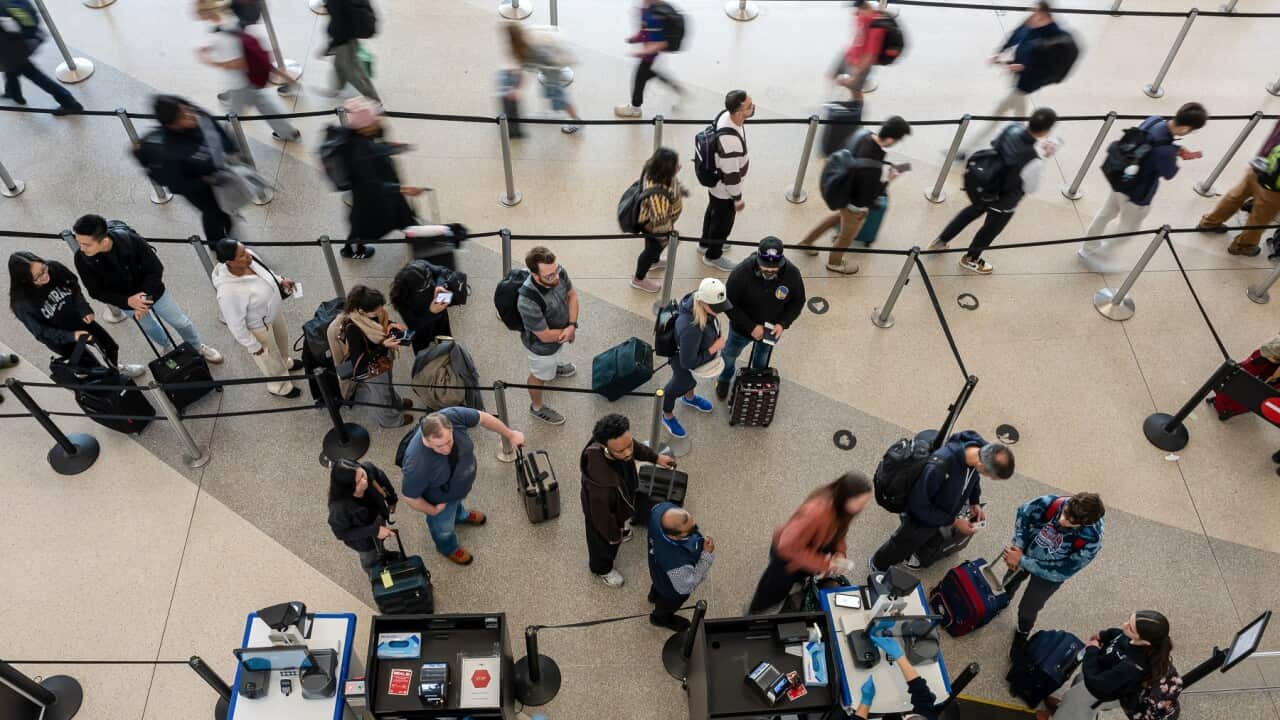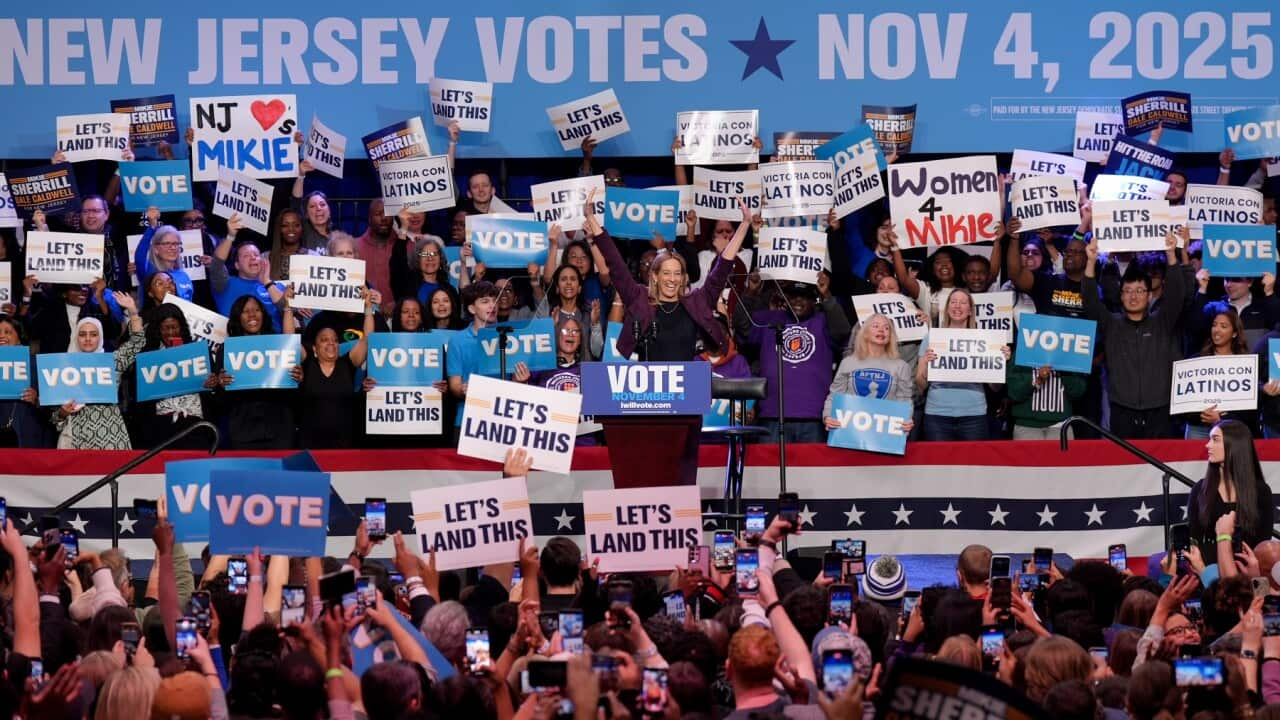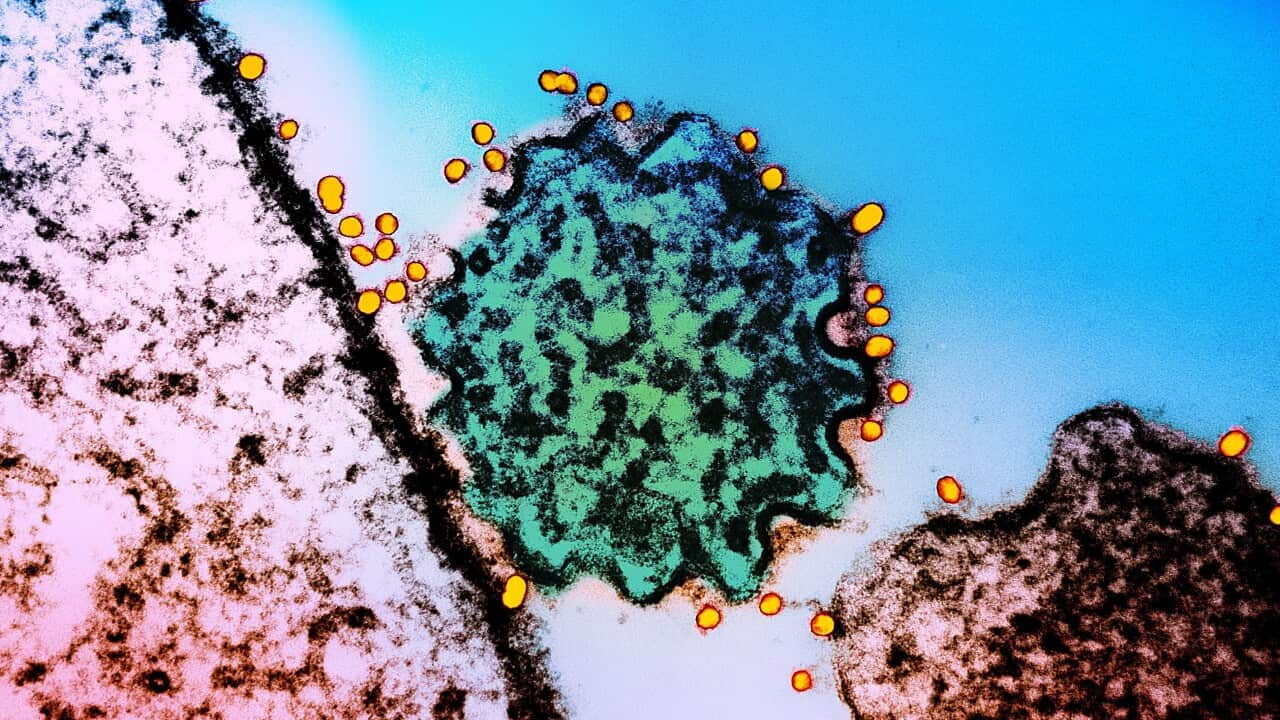Listen to Australian and world news, and follow trending topics with SBS News Podcasts.
TRANSCRIPT
"You see your child, nothing much to add, you see your child dying before your eyes and you can't do anything. It drives you crazy, it's unbearable, there's nothing you can do. It's hard, very hard."
That's the father of hostage Rom Braslavski, Ofir, reacting to seeing a video of his son appearing unwell and emaciated.
He says as a parent, it breaks his heart to see his son in such poor health.
Fifty hostages remain in Gaza, at least 20 of whom are believed to be alive.
The images of emaciated Israeli hostages held in Gaza have horrified Israelis and added pressure on Prime Minister Benjamin Netanyahu to reach a ceasefire agreement with Hamas.
Tens of thousands of Israelis took to the streets on Saturday night to demand a ceasefire deal, in one of the largest turnouts for the weekly protests in recent months.
Mr Netanyahu says he will convene his cabinet later this week to discuss the next steps for Israel's military.
He says the videos have strengthened his resolve to topple Hamas.
"We must continue to stand together and fight together to achieve the war goals we have set, all of them; the defeat of the enemy, the release of our hostages, and the assurance that Gaza will no longer pose a threat to Israel. Later this week, I will convene the cabinet to instruct the IDF on how to achieve these three goals, all of them, without exception."
Meanwhile, Gaza's humanitarian crisis continues, with Gaza's Health Ministry saying five more people have died from malnutrition in the last 24 hours, raising the toll of those dying from hunger to 180 since the war began.
62-year-old Hassan Abu Zayed told Reuters he had been waiting outside a makeshift soup kitchen in Khan Younis since early morning for a meal to feed the children in his family.
He says that for many like him, aid remains out of reach.
"It is terrible famine. People who do not die because of the war, die because of hunger. There is no food for people. People are done. Enough. Enough."
Anthony Aguilar is a former contractor for UG Solutions, a company paid to provide security for aid deliveries in Gaza.
He says the aid distribution operation he worked on, where 20 people were killed in a stampede in mid-July, is like the dystopian survival movie 'The Hunger Games'.**
"We would place all of the aid on a site in piles and rows, kind of like, imagine, if you will, the Hunger Games. When distribution happened, the Israeli Defence Force would release the large crowd, and the building crowd of Palestinians from a security line about a kilometre away, respectively, to each site, depending on which site we were using. And then that would turn into only what I could describe as like the Gaza Olympics or the survival of the fittest, that it just became an all-out race to the sites to get the aid."
The Gaza Humanitarian Foundation, which runs the aid distribution sites, and UG Solutions, which provided security on its behalf, deny any wrongdoing.
They say Mr Aguilar is a disgruntled ex-employee who was fired for poor performance.
A spokesperson for the Israeli Defence Force, Lieutenant Colonel Nadav Shoshan, says the Israeli army is committed to the effort of bringing humanitarian aid into Gaza.
He says the war against Hamas in Gaza could end today, if Hamas puts down its weapons and releases Israeli hostages.
"We are working alongside international organisations. This is something we've been doing since the beginning of the war in a joint war room, daily conversations with the different organisations and the international community on how to improve aid distribution in Gaza. Obviously, the IDF is in charge of facilitating the entrance. But also we do everything we can to make sure that we help the international organizations, that we make the adjustments to help them distribute the aid. So we've put in place designated routes that are agreed and known to both sides. We've put out tactical ceasefires in different locations that can help them distribute aid. And we're communicating with them every day, finding new ways to improve distribution and find solutions to the problems."
He insists Israel is not putting a limitation on the amount of aid trucks going in.
But Hassan Abu Zayed - who was queuing at the soup kitchen in Khan Younis - says the system isn't working.
"This aid does not reach us. We do not see it. People like us do not get aid. Most of the people do not get the aid. We hear about it in the news but we do not see it. We do not see it on the ground. I hope that the crossings open and the food enters and the flour and aid enters for people and that this big crisis that we are living ends."
The Israeli military agency that coordinates aid says during the past week, more than 23,000 tons of humanitarian aid in 1,200 trucks has entered Gaza, but much of that aid has yet to be driven to aid distribution hubs.
Meanwhile, Australia's Prime Minister Anthony Albanese has spoken to President Mahmoud Abbas of the Palestinian Authority.
Mr Albanese reiterated Australia’s call for the immediate entry of aid to meet the needs of people in Gaza, a permanent ceasefire, and the release of all hostages.
He also reinforced Australia’s commitment to a two-state solution because, he says, a just and lasting peace depends upon it.
